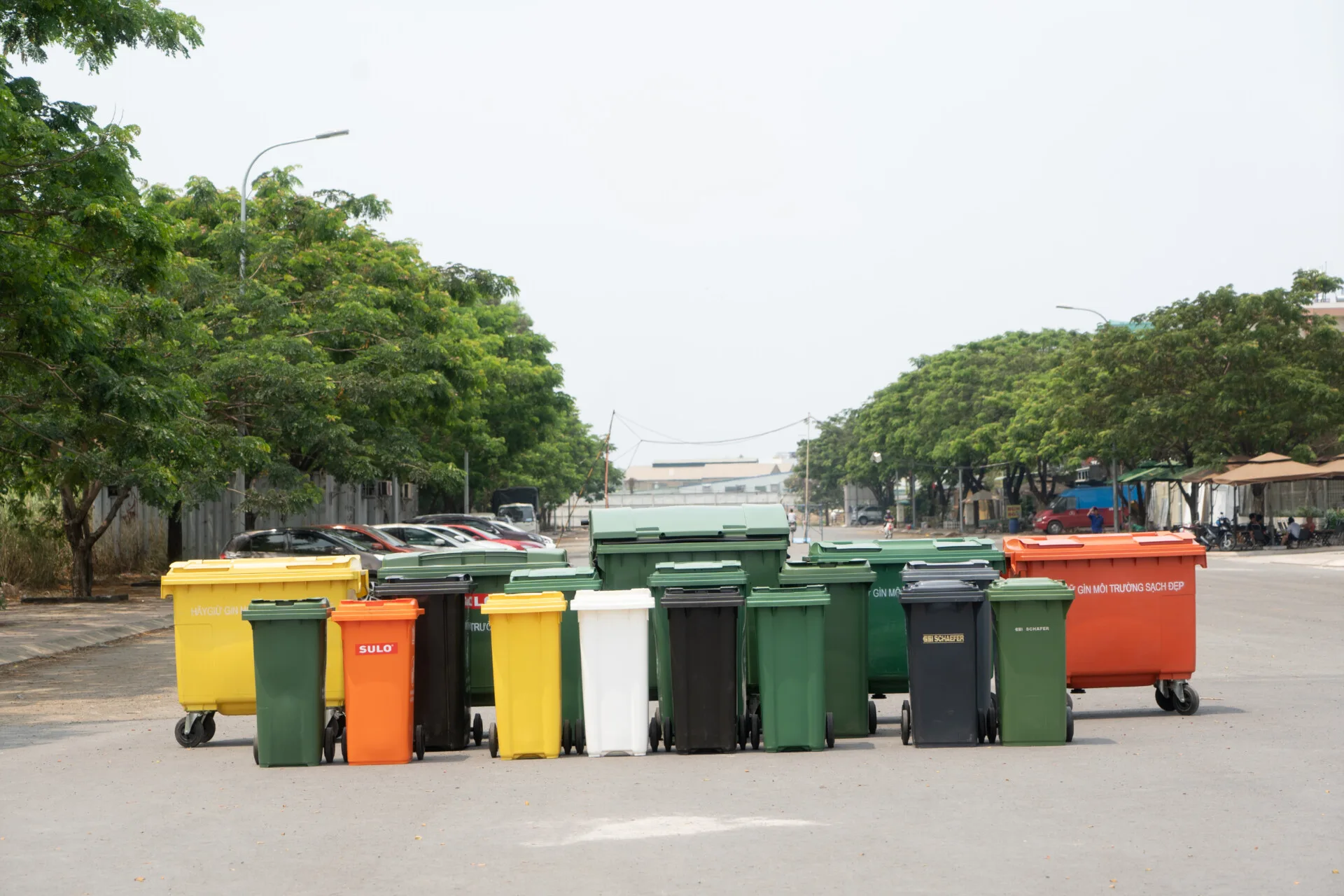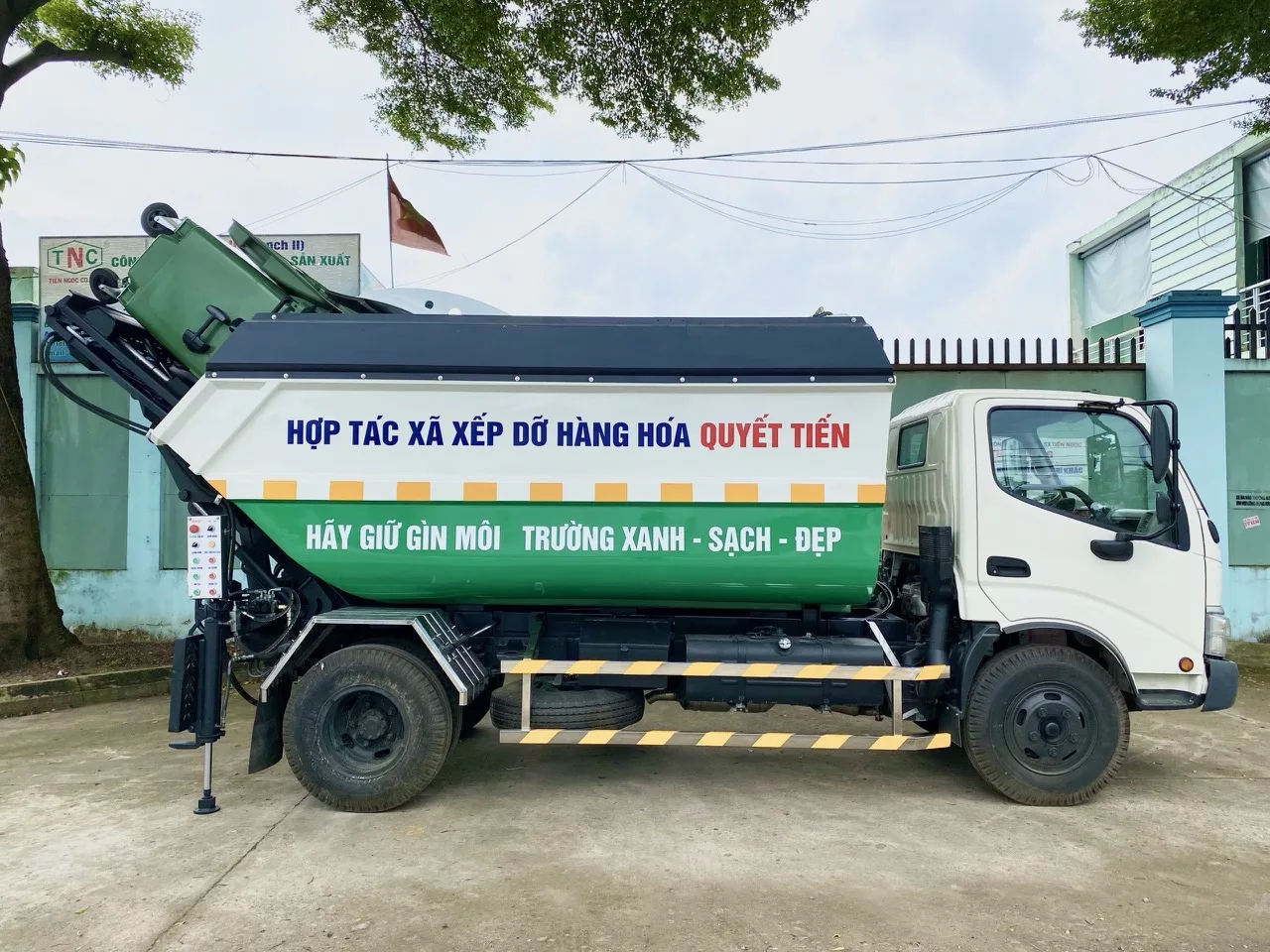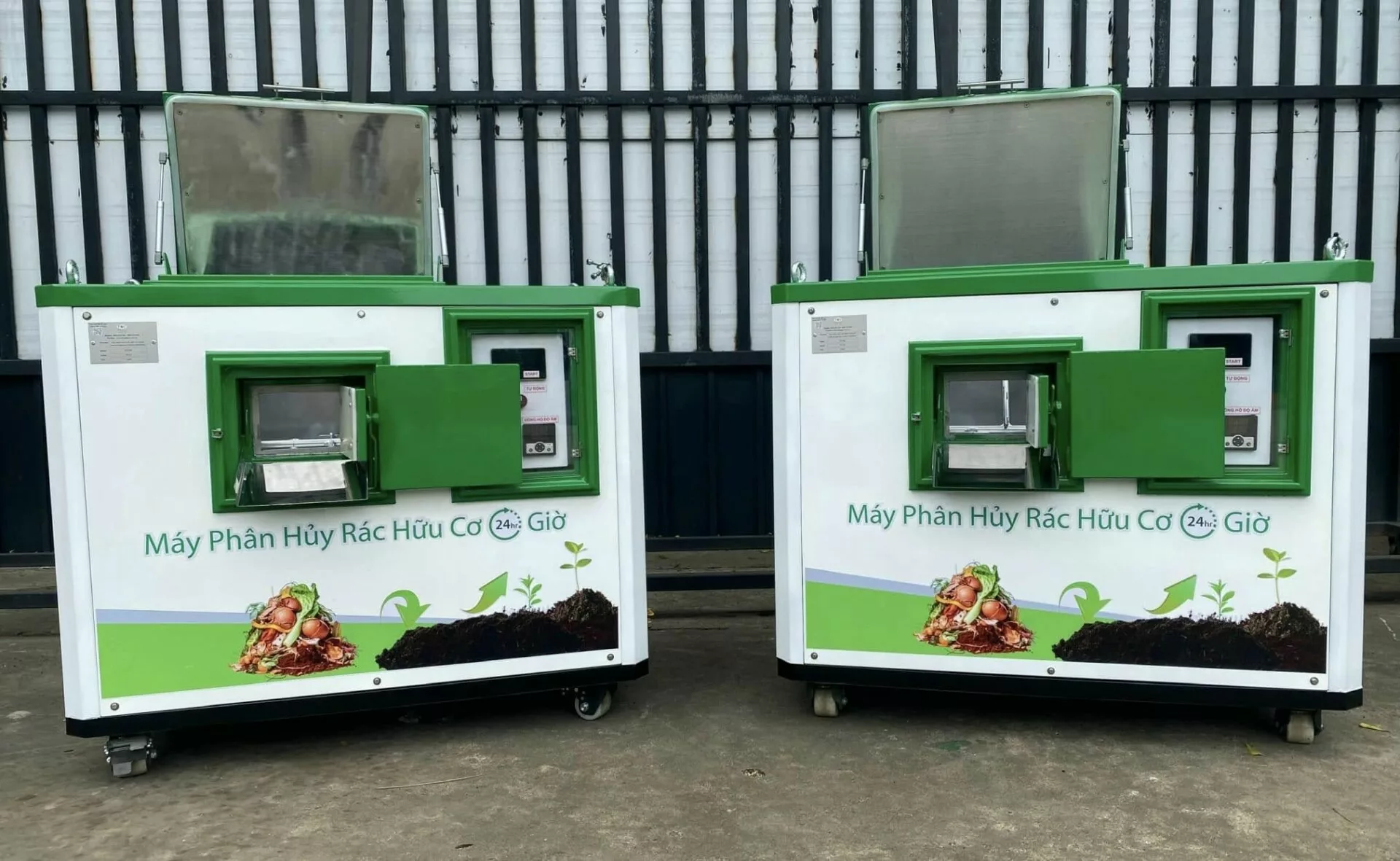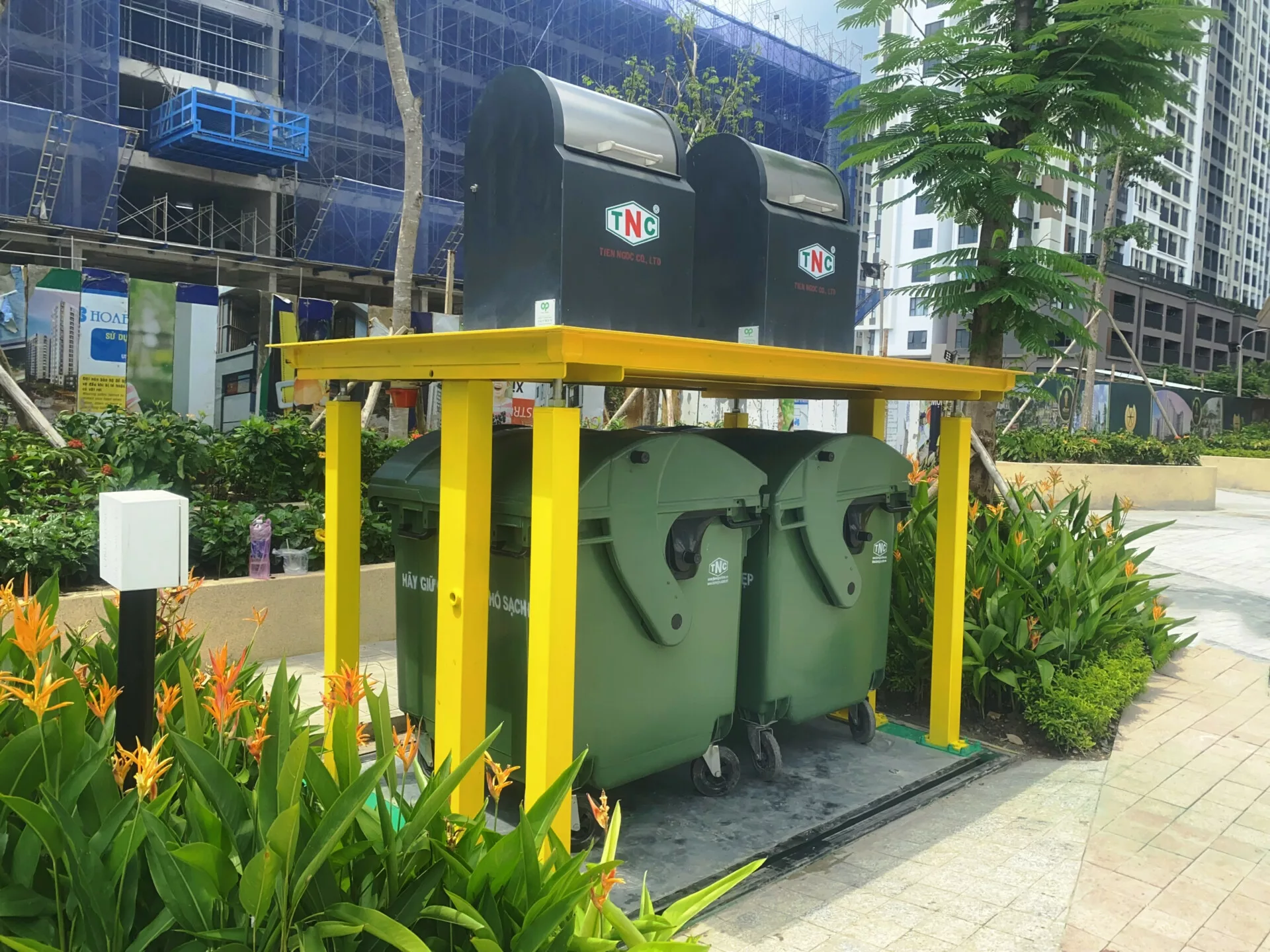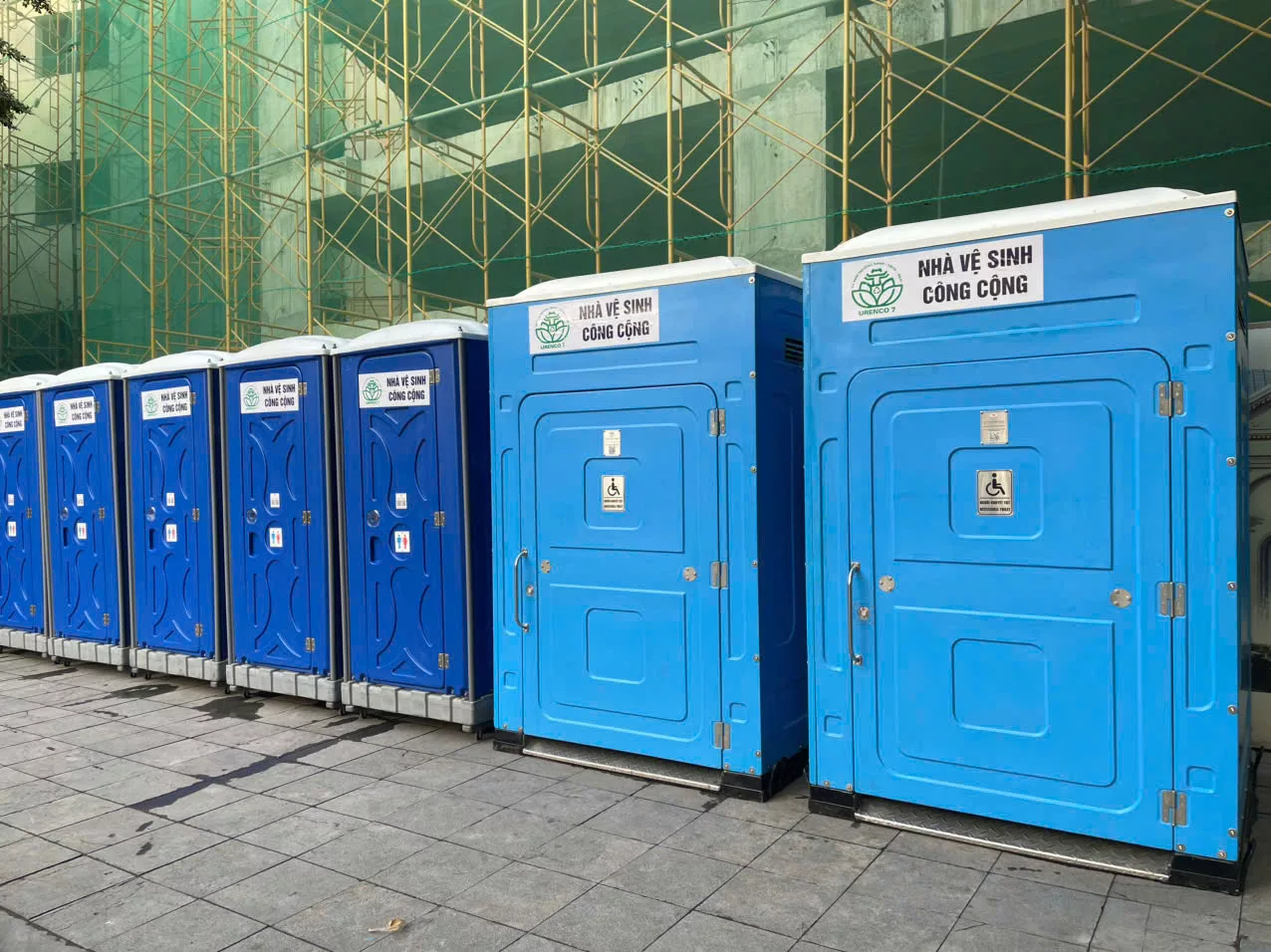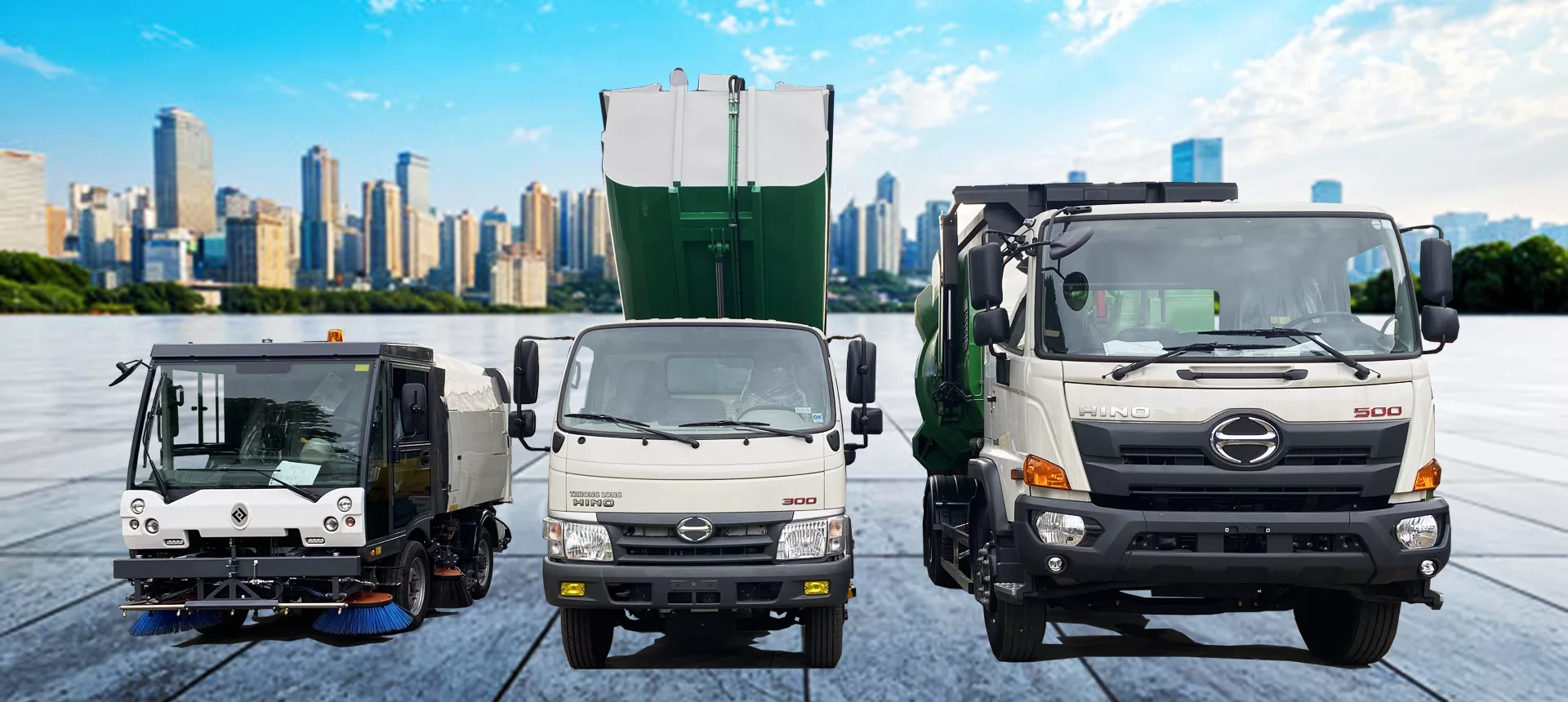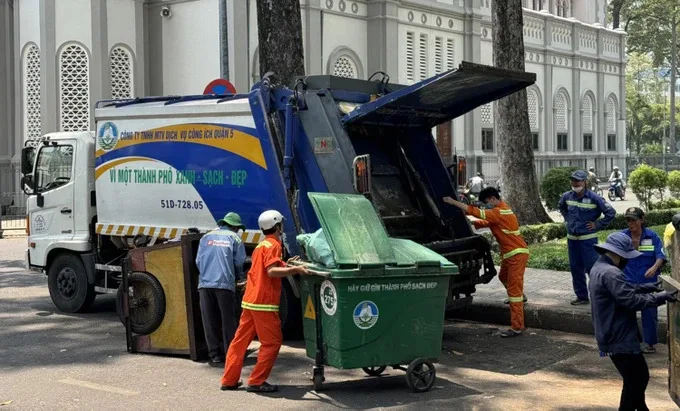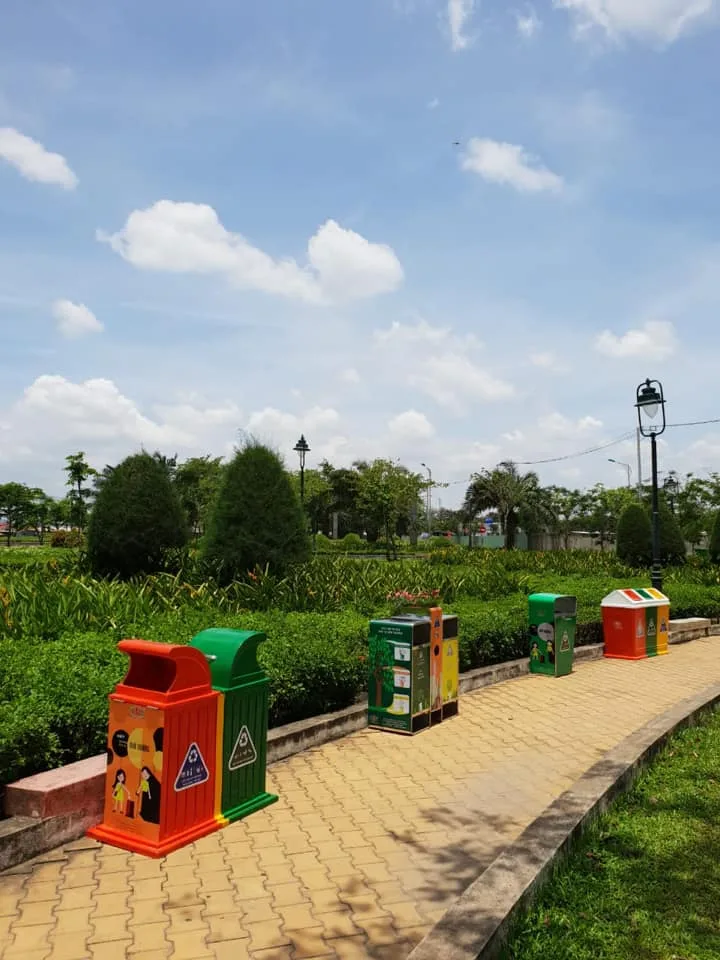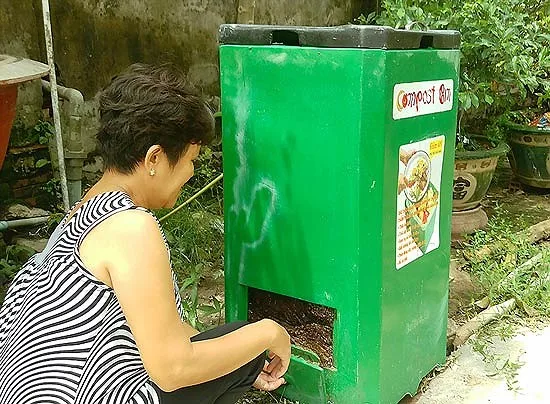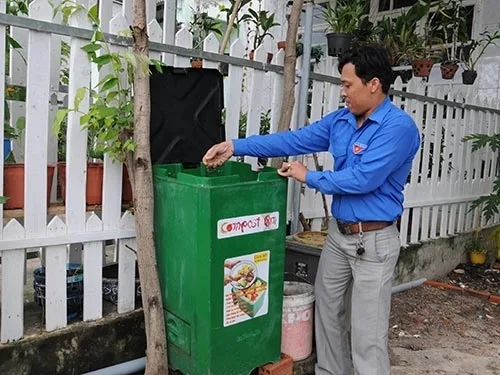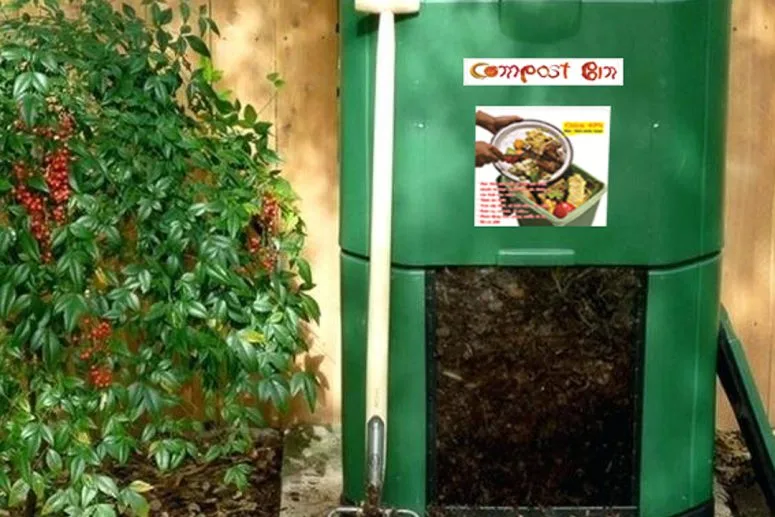Individuals and households must classify domestic solid waste into three groups: recycled, food, and other, otherwise, they will be fined from VND500,000 to VND1 million.
Waste classification at source is one of the environmental policies that will take effect from January 1, 2025, according to the guidance of the Ministry of Natural Resources and Environment to implement the Law on Environmental Protection 2020.
Accordingly, individuals and households classify domestic solid waste into three categories: recycled, food, and other. If they do not classify, they will be fined from VND500,000 to VND1 million, according to Decree 45/2022. For the act of not classifying and storing industrial solid waste separately after classification, organizations, agencies, and production facilities will be fined VND20-30 million.
The People’s Committees of localities and inspectors of the natural resources and environment sector have the authority to sanction the above acts.
According to Ms. Duong Thi Thanh Xuyen, Head of the Department of Domestic Solid Waste Management (Ministry of Natural Resources and Environment), sorting waste at source will help increase recycled materials. This is the basis for forming a circular economy, turning waste into resources, and serving production. This regulation also contributes to environmental protection, minimizing the amount of waste that needs to be treated, towards a zero-emission economy by 2050.

Graphics: Đăng Hiếu – Phùng Tiên
Associate Professor, Dr. Nguyen The Chinh – former Director of the Institute of Strategy and Policy on Natural Resources and Environment (Ministry of Natural Resources and Environment) said that unsorted waste will cause damage to the economy and society, and at the same time negatively impact climate change, due to the large amount of methane emissions from organic waste.
Some localities have piloted waste sorting at source early on, but there are still problems. According to Ms. Xuyen, the lack of collection infrastructure makes waste sorting meaningless. In addition, Vietnam has not formed a recycling economy, leading to “the confusion in finding output for solid waste”.
“For classification to be effective, the infrastructure must be synchronous”, Ms. Xuyen said at a discussion in mid-December.
The Law on Environmental Protection defines that People’s Committees at all levels are responsible for issuing regulations on the management of domestic solid waste, including regulations on waste classification. As of mid-December, 58 localities have issued this regulation, and 5 localities are waiting for approval.
With the waste classification policy at the source, recyclers also expect to have a clean source of raw materials, not mixed with household waste, reducing the loss rate of input materials.

Household waste will be classified for easy collection and recycling. Photo: Gia Chính
From January 5, facilities producing iron, steel, cement, petrochemicals, etc. must pay environmental protection fees for emissions, according to Decree 153/2024.
This fee includes two fixed amounts of VND 3 million per year and a variable amount (applied to facilities with large discharge volumes, subject to monitoring). The variable amount is calculated based on the emitted pollutants, including VND 800 per ton of dust, NO2 and NO gas, and VND 500 per ton of CO… This fee also applies to facilities recycling and treating domestic solid waste, using imported scrap as raw materials for production.
In addition, from January 2025, production facilities must publicly disclose the energy consumption of motor vehicles (cars, motorbikes, etc.), according to Circular 55 of the Ministry of Transport. The information must be maintained throughout the time they provide this type of vehicle to the market.
Regarding plastic, the roadmap to reduce production and import of non-biodegradable plastic bags will start from January 1, 2026. The Government assigned the People’s Committees of localities to regulate and manage plastic waste, ensuring that after 2025, there will be no circulation or use of disposable plastic products.
Bảo Bảo
